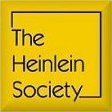|
|
|
- Ariel
- In The Tempest, the magical spirit that serves the magician Prospero.
- Lady Macbeth
- In the historical play Macbeth, Shakespeare portrays her as driving her husband on to murder King Duncan in order to usurp the throne. According to historical records, however, Macbeth killed Duncan in battle, not through a murder plot. Shakespeare's version is much better known than the historical facts, so Lady Macbeth has become a byword for conniving ruthlessness.
- Romeo and Juliet
- Tragedy in which young lovers from feuding families marry secretly but then, each thinking the other has died, kill themselves.
- Titania
- The queen of the fairies in A Midsummer Night's Dream. She is depicted in the play as quarreling with her consort, Oberon, over a changeling boy.


